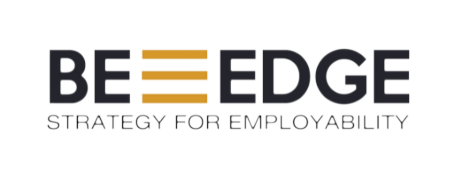
What Exactly Is a Consulting Course?
Consulting has become an indispensable profession in today’s rapidly evolving business landscape. Organizations across industries rely on consultants to provide expert advice, solve complex problems, and drive innovation.
If you’ve ever considered a career in consulting or wondered what it takes to become a successful consultant, you’ve likely come across the idea of taking a consulting course. But what exactly is it and why is it essential for those aspiring to enter this field? In this blog post, we will explain consulting by exploring the nature and components of a consulting course.
Defining a Consulting Course
Before we dive into the details, let’s begin by defining what a consulting course is. At its core, a consulting course is an educational program or training designed to equip individuals with the knowledge, skills, and techniques required to excel in the consulting profession.
These courses provide a structured framework for understanding and mastering the art of consulting, preparing individuals to offer valuable guidance and solutions to organizations and clients.
Core Components of a Consulting Course
A consulting course typically comprises several core components that collectively provide a comprehensive foundation for aspiring consultants. Let’s break down these components and understand their significance:
-
Consulting Framework and Process
Consulting courses start by introducing students to the fundamental framework and process of consulting. This includes understanding how consultants identify problems, gather and analyze data, develop solutions, and implement recommendations. It serves as the backbone of a consultant’s work.
-
Specialized Industry or Niche Knowledge
One of the key elements of a consulting course is the acquisition of specialized knowledge in a particular industry or niche. Depending on your area of interest, you can find consulting courses tailored to industries like healthcare, information technology, finance, and more. This specialization allows you to become an expert in your chosen field.
-
Communication Skills
Effective communication is at the heart of consulting. Courses emphasize the importance of clear and persuasive communication, both in written and verbal forms. Consultants must be able to convey their ideas, insights, and recommendations convincingly to clients and stakeholders.
-
Project Management
Consulting often involves managing complex projects. As such, consulting courses include project management training, covering aspects like project planning, budgeting, resource allocation, and time management. These skills are essential for successfully executing consulting engagements.
-
Analytical Tools and Techniques
Consultants rely on data-driven insights to make informed decisions and recommendations. Consulting courses teach students how to use various analytical tools and techniques to gather, process, and interpret data effectively.
-
Client Relationship Management
Building and maintaining strong client relationships are vital in consulting. Courses provide guidance on establishing trust, understanding client needs, managing expectations, and fostering long-term partnerships.
-
Ethical and Legal Considerations
Ethical and legal considerations play a significant role in consulting. Courses address the ethical responsibilities of consultants, including confidentiality and conflicts of interest. Understanding these principles is crucial for maintaining professional integrity.
-
Problem-Solving Methods
Consultants are problem solvers. Consulting courses focus on equipping students with robust problem-solving methodologies and approaches. Through case studies and real-world scenarios, students learn to navigate complex challenges and deliver practical solutions.
Types of Consulting Courses
Consulting courses come in various forms, catering to different needs and preferences. Here are some common types of consulting courses you might encounter:
-
Industry-Specific Courses
These courses delve deep into a particular industry or sector, providing specialized knowledge and insights. Examples include courses in healthcare consulting, environmental consulting, and financial consulting.
-
General Consulting Programs
General consulting programs offer a broad overview of consulting principles and practices. They are suitable for individuals looking to enter consulting without specializing in a particular industry.
-
Online Courses, Certifications, and Degrees
With the rise of online learning, many consulting courses are now available through digital platforms. These online options offer flexibility and accessibility, making them ideal for individuals with busy schedules.
Learning Objectives and Outcomes
When you enroll in a consulting course, you can expect to achieve specific learning objectives and outcomes. These may include:
-
Enhanced Problem-Solving Abilities
Consulting courses sharpen your problem-solving skills, enabling you to tackle complex issues systematically and creatively.
-
Improved Communication Skills
You’ll develop effective communication skills, allowing you to articulate your ideas clearly and persuasively, both in writing and speaking.
-
In-Depth Industry Knowledge
Industry-specific consulting courses provide in-depth knowledge of the sector you’re interested in, making you an invaluable resource in that field.
-
Project Management Proficiency
You’ll gain proficiency in project management, ensuring you can handle consulting projects efficiently and deliver results on time and within budget.
-
Ethical Decision-Making
Courses instill ethical decision-making principles, ensuring you maintain the highest standards of professional conduct.
-
Practical Experience
Many consulting courses include case studies and practical exercises, allowing you to apply your newfound knowledge to real-world scenarios.
Format and Duration
Consulting courses are offered in various formats, allowing you to choose one that aligns with your preferences and commitments. These formats include:
-
In-Person Courses
Traditional, classroom-based consulting courses provide face-to-face interaction with instructors and peers. They are ideal for those who prefer a structured, immersive learning experience.
-
Online Courses
Online consulting courses offer flexibility, allowing you to study at your own pace and on your own schedule. This format is suitable for individuals with busy lifestyles or those who prefer remote learning.
-
Self-Paced Learning
Some consulting courses are designed for self-paced learning, giving you complete control over your study timeline. While convenient, self-paced courses require discipline and self-motivation.
-
Instructor-Led Programs
Instructor-led consulting courses provide guidance and mentorship from experienced professionals in the field. They offer opportunities for real-time interaction and feedback.
The duration of consulting courses varies widely, depending on factors such as the depth of content and the format chosen. Some courses may be completed in a matter of weeks, while others, especially those leading to certifications or degrees, can span several months or even years.
Benefits of Taking a Consulting Course
Now that we’ve delved into what a consulting course entails, let’s explore the benefits of enrolling in one:
-
Career Advancement Opportunities
A consulting course can open doors to exciting career opportunities. Employers often value candidates with formal consulting education, making it easier to secure consulting roles or promotions.
-
Increased Earning Potential
Consultants with specialized knowledge and skills command higher salaries and consulting fees. Investing in a consulting course can lead to a more lucrative career.
-
Personal and Professional Growth
Consulting courses not only enhance your technical skills but also contribute to your personal and professional growth. You’ll become a more confident and capable professional.
-
Networking Opportunities
In consulting courses, you’ll have the chance to network with fellow students, instructors, and industry professionals. Networking can lead to valuable connections and potential job offers.
-
Diverse Career Paths
Consulting skills are transferable across industries and sectors. With a consulting course under your belt, you can explore a wide range of career paths, from management consulting to entrepreneurship.
Case Studies and Practical Exercises
A significant aspect of consulting courses is the inclusion of case studies and practical exercises. These elements allow students to apply their newly acquired knowledge and skills to real-world scenarios. By working through case studies and exercises, students gain hands-on experience in problem-solving, client interaction, and project management.
Conclusion
In the world of consulting, knowledge is power, and a consulting course provides the key to unlocking that power. We’ve journeyed through the essential components of a consulting course, explored the various types available, and highlighted the benefits of embarking on this educational path. Whether you’re a recent graduate aspiring to enter the consulting profession or an experienced professional looking to enhance your consulting skills, a consulting course can be a transformative investment in your career.
Are you ready to take the next step in your consulting journey? Start with our Becoming a Case Consultant Course.


